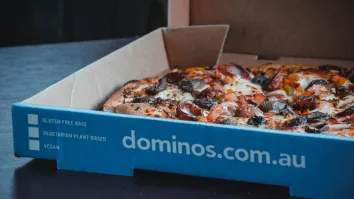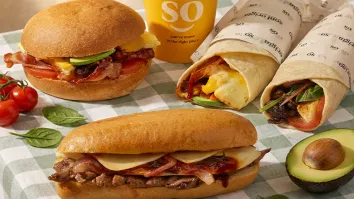
Aussie QSRs redefine value with healthier, smarter choices
Precision, adaptability, and emotional relevance will set the winners apart.
Quick-service restaurants (QSRs) in Australia are moving beyond the traditional focus on speed and low prices, placing greater emphasis on quality, health benefits, and digital convenience, according to Euromonitor International.
“The definition of value is changing,” said Julia Illera, research manager at Euromonitor, ahead of her appearance at the QSR Media Conference & Awards 2025 Powered by Red Bull. “Australian consumers are becoming more deliberate in their foodservice choices. It’s no longer defined by price alone.”
She noted that bundled offers and smaller portion sizes are gaining popularity, as fast-food chains find ways to offer flexibility without compromising satisfaction.
“McDonald’s, for example, continues to lead with its app-based promotions and gamified engagement, helping to maintain visit frequency even as discretionary spending tightens,” she said.
Health-focused menu items have also become a standard expectation, pushing brands to expand beyond their traditional products.
“Dairy-free, plant-based, and functional ingredients have moved from niche to mainstream,” Illera said. She cited brands like Boost Juice and Oakberry Açaí for their clean-label innovations and Soul Origin for expanding its breakfast range to meet the needs of busy, health-conscious consumers.
Structural challenges are reshaping operations across the sector. “Labour shortages and rising operating costs have become structural challenges, not temporary disruptions,” she said.
In response, many operators are cutting trading hours, simplifying menus, and increasing their use of automation and digital tools to alleviate staffing pressures.
“Brands like KFC and Oliver’s are trialling voice artificial intelligence (AI) systems, whilst Grill’d is using digital displays to streamline drive-thru operations,” she added.
Physical store formats are also evolving. Drive-thru and smaller, mobile setups are becoming more common, especially in the suburbs. “Banjo’s Bakery Café, for example, has introduced drive-thru formats and diversified its offer with new product segments like doughnuts,” Illera said.
Pop-ups and food trucks are also on the rise, but success depends on standing out. “Success depends on offering something distinctive, whether that’s a globally inspired flavour profile, a premium product, or a unique experience,” she said.
Illera said precision, adaptability, and emotional relevance would set the winners apart.
“Precision will be critical in how brands use data to personalise offers, optimise pricing, and tailor experiences,” she said. This includes loyalty programs, curated menus, and location-specific promotions.
“Adaptability will define how brands respond to structural challenges such as labour shortages, rising input costs, and shifting consumer routines,” she added.
She also said emotional relevance would be a key differentiator, with more consumers aligning their food choices with personal values related to health, sustainability, and cultural identity.
“Ultimately, it’s not about being everywhere,” Illera said. “It’s about being relevant wherever you are.”
























